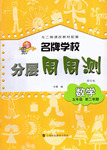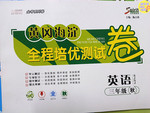题目内容
10.What will the man do tomorrow?A.Do some shopping
B.Attend a job interview.
C.Organize a fashion show.
分析 略
解答 B
点评 略

练习册系列答案
 名牌学校分层周周测系列答案
名牌学校分层周周测系列答案 黄冈海淀全程培优测试卷系列答案
黄冈海淀全程培优测试卷系列答案
相关题目
题目内容
10.What will the man do tomorrow?分析 略
解答 B
点评 略

 名牌学校分层周周测系列答案
名牌学校分层周周测系列答案 黄冈海淀全程培优测试卷系列答案
黄冈海淀全程培优测试卷系列答案